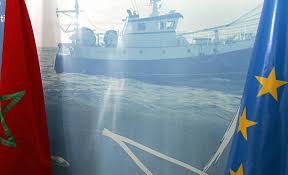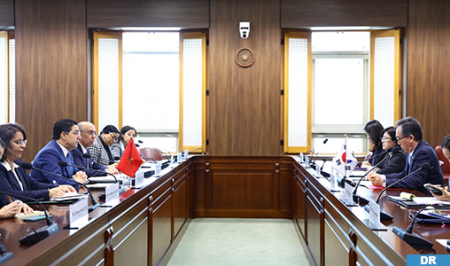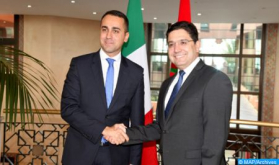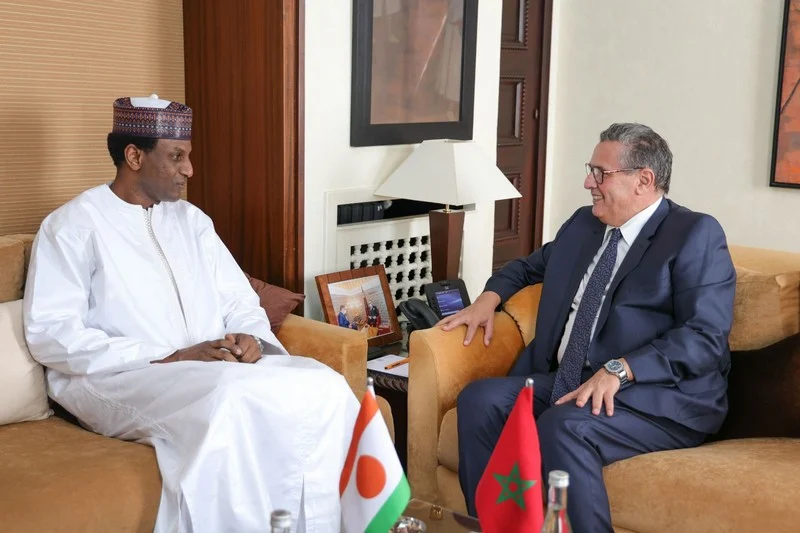 The EU and Morocco have agreed on new terms of a fisheries agreement covering the Sahara. Morocco described the deal as a recognition of its sovereignty of its southern provinces and its quality as “the only interlocutor in negotiating international agreements covering the Sahara.”
The EU and Morocco have agreed on new terms of a fisheries agreement covering the Sahara. Morocco described the deal as a recognition of its sovereignty of its southern provinces and its quality as “the only interlocutor in negotiating international agreements covering the Sahara.”
From the start of negotiations in Rabat, Moroccan officials made it clear that sovereignty over the Sahara is a red line and that agreements signed by Morocco shall cover all its territories including the Sahara.
The precision came after a ruling of the European Court of Justice saying that the fisheries agreement was valid as long as it does not include the Sahara.
The verdict was weathered by the realism of the European Council and the European Parliament, which gave the Commission a green light to negotiate a new agreement.
Although they dealt a blow to the Polisario, which was not cited and even if the EU does not recognize the Algerian-backed separatists, the opponents of Morocco’s territorial integrity tried in vain to derail the EU-Moroccan cooperation.
Following the verdict, international experts expressed rejection of the ECJ interference in foreign policy issues. The court was clearly not eligible to rule on international law issues as such a verdict will open the gate to a precedent that would encourage separatist groups to challenge EU deals in the future.
“In legal terms, Western Sahara cannot be defined as such (occupied territory) because it does not fulfill the criteria, stipulated by Article 42 of The Hague Convention: Presence of an enemy state on the territory, exclusion of the legitimate authority and substitution by an occupying authority. In fact, when Morocco succeeded Spain in Western Sahara in 1976 in accordance with the Madrid Agreement, there was no Sahrawi State on this territory, which was part of the Moroccan Kingdom prior to the colonization,” Eli Hadzhieva, Founder and Director of Dialogue for Europe said.
The interference of the ECJ in the fisheries and agricultural agreements signed between Morocco and the EU brought confusion to the functioning of the court.
If the court follows the pro-Polisario stands, “a domino effect could occur in Wallonia or Catalonia for instance, which would put the stability of the Union in peril,” she said.
Legal experts also argue that the EU court is not entitled to scrutinize international treaties (which are of the order of international law). Such cases exceed the remit of the ECJ, which is not entitled to assume the role of the international court of justice.
The legality of the agreement, key to the EU-Morocco partnership, has been challenged by Western Sahara Campaign (WSC), a lobbying group based in the UK. For years, WSCUK has been contesting Morocco’s legitimacy to govern its Southern provinces, claiming Western Sahara should be independent.
Such meddling of the ECJ in foreign policy issues involving the sovereignty of a state on its territories is doomed to lead to biased opinions that are detached from reality on the ground and are clearly politically motivated, legal experts argue.
The case of the agricultural agreement illustrates the extent to which the EU needs to ensure coherence within its institutions. In November 2016, after an initial ruling declaring void the Moroccan-EU agricultural agreement, the ECJ issued a final verdict correcting its previous injustice regarding Morocco and putting the institution in line with other EU bodies in addition to asking the Polisario to pay the costs of the judicial proceedings, the foreign ministry had then said in a statement.
The court slammed the Polisario as “not concerned” by the EU-Morocco trade deals and ineligible to plea at the court.
Now, the EU commission, the European council and the European Parliament slam the ECJ blunder and express out loud that the EU court is not concerned with international agreements falling within the framework of international law.
“It must be a lot of fun to be a judge, though you have to assume a grave, un-fun, demeanor. You get to have opinions, picking out what supporting evidence you like and brushing aside what you do not like. It is not like being a sweaty, sleep-deprived scientist, subject to the whims of material reality. If you are a judge, material reality is subject to you,” John Dizard said on the Financial Times commenting the hasty decision of the ECJ in deliberating EU-Morocco fisheries deal.


